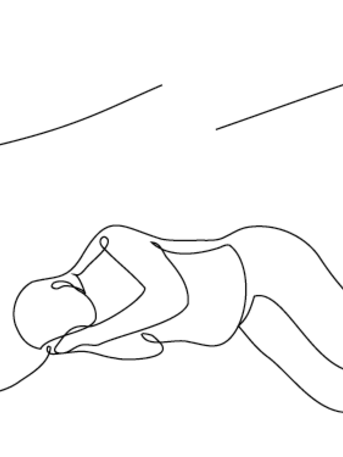Thinking yourself happy - is that possible?
Some of us see the world through rose-tinted glasses, whilst others have a much darker and more negative perspective instead of positive. Finding out how even the greatest pessimists can see the light at the end of the tunnel and move towards a fulfilling life is something that has always been of interest to psychologists. But can we really ‘think ourselves happy’? How much influence do we actually have over our thoughts?
The Park Igls health retreat’s psychologists, Dr Melanie Robertson and Thomas Blasbichler (MA), discuss the issues surrounding positive thinking and positive psychology – and share how we can focus on what’s good in our lives, without losing sight of the reality. ‘Influencing conscious thought to gain greater life satisfaction is at the heart of some of the concepts that focus on positive thinking,’ Thomas Blasbichler explains.
'The Brockhaus der Psychologie', a German encyclopaedia of psychology, describes positive thinking as ‘the adaptation of thought processes to promote mental and physical health, happiness and success’. As early as the 19th century, the French pharmacist Émile Coué developed a mantra-like phrase for his patients to repeat several times a day: ‘Every day, in every way, I’m getting better and better’.
Positive, but reflective
‘Positive thinking maintains our ability to act and inspires us to take a proactive approach to life and its challenges,’ Dr Melanie Robertson explains. In simple terms, it is about expecting positive things to happen and therefore recognising when they do. ‘We gain self-confidence and are more likely to have faith in our own success,’ she adds.
But positive thinking doesn’t mean blocking out or denying the negative. ‘Nothing in life is totally positive or completely negative. What matters are the aspects we choose to focus on.’ As with most things, positive thinking also requires critical reflection: ‘The positive thinking approach becomes problematic when it puts us under pressure,’ Robertson stresses. ‘Think positive!’ is a recommendation that may not be easily put into practice.
‘People suffering from depression may really want to think positive, but at this stage it is something they would likely find extremely difficult,’ she explains. ‘Telling someone to think positive can also convey the impression that they are responsible for their suffering, which is often untrue. Repeatedly trying and failing attempts at “forced positive thinking” can also lead to greater anxiety and feelings of guilt,’ Blasbichler adds.
Thoughts control feelings
‘Our experiences, thoughts and feelings influence how we perceive the world and therefore how we behave. This is substantiated by neurobiological findings. Feelings arise due to external or internal stimuli, are accompanied by physical sensations and can be understood as a review of our opinions, needs, motives and goals.
They are associated with specific facial expressions and postures and have an impact on our social relationships and general conduct,’ Blasbichler explains.
Robertson believes that this results in a cycle: ‘In principle, what happens is that a situation occurs; we perceive the situation – or certain aspects of it – and feelings such as sadness, joy or fear arise as a result of this perception. These feelings in turn lead to certain actions.’ Since feelings arise involuntarily as a reaction to external stimuli they cannot be changed. Thoughts, on the other hand, can be changed, even if they arise suddenly and automatically. Blasbichler explains further: ‘If we recognise them as negative thoughts, we can reflect on them, classify them and then change them if we need to.’
Positive Psychology
‘The glass-half-full analogy is a good representation of a fundamentally positive approach. It indicates that in the eye of the beholder the glass can be interpreted as half-full or half-empty. However, in life we are constantly faced with situations and periods during which it becomes difficult to maintain this attitude, and life’s challenges feel overwhelming,’ Robertson says.
Blasbichler adds: ‘We need to recognise and accept negative thoughts and their impact on our feelings. This weakens their impact. If instead we rigidly try to avoid and control unpleasant feelings and thoughts, we can end up severely restricting our lifestyle.’
‘Allowing the feelings in and examining their impact is essential. Feelings are real and always right, particularly in the here and now, even if they relate to situations in the past or future. I cannot feel incorrectly. Thinking can help me to clarify how I’m feeling, why I’m feeling that way, and draw corresponding conclusions,’ Robertson says. In the 1990s, US-American psychologist Martin E P Seligman coined the term positive psychology to describe a field of psychological theory and research. It differs from the concept of positive thinking in that it is backed by empirical evidence, i.e. numerous studies have been carried out on its effectiveness.
5 measurable elements that contribute to wellbeing
- Positive emotion (a pleasant life)
- Engagement (utilising your strengths)
- Relationships (a sense of belonging)
- Meaning (belonging to and serving something bigger than oneself)
- Achievement
Little lexikon of positive thinking
It can be difficult to navigate your way through the jungle of self-help and scientific literature, so Thomas Blasbichler has put together an explanation of the key terms from 'Brockhaus Psychologie: Fühlen, Denken und Verhalten verstehen (2009)'
This means adapting your thought processes to promote mental and physical health, happiness and success.
A scientific discipline that investigates what makes people happy and contributes to wellbeing.
This describes the ability to identify your own feelings and the feelings of others and be able to influence them.
This describes the ability to endure life crises or lasting disruption. A roly-poly toy is a good representation of a resilient person.



















